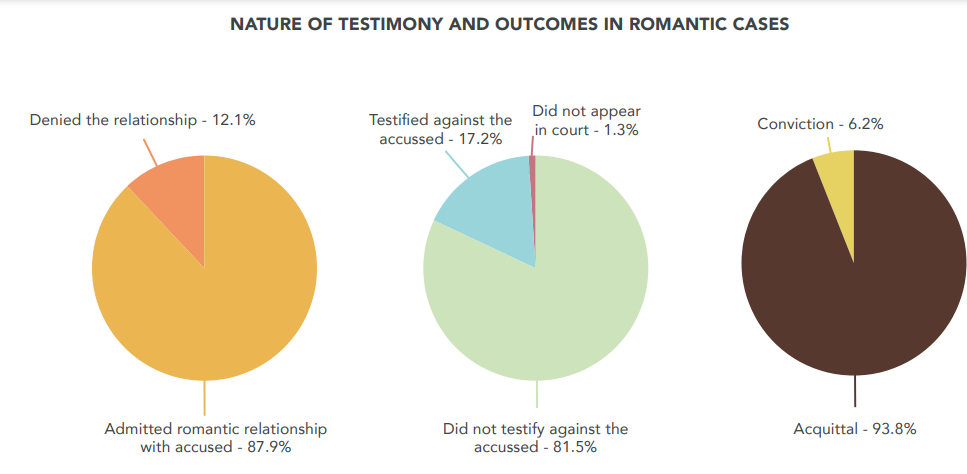- Home
- Prelims
- Mains
- Current Affairs
- Study Materials
- Test Series
POCSO not meant to criminalise consensual relationships
- India enacted the Protection of Children from Sexual Offences Act (POCSO Act) in 2012 to plug the legislative gaps concerning sexual violence against children under the age of 18.
- However, the act does not recognise consensual sexual behaviour of older adolescents above 16 years.
- This in gross oversight of their normative sexual behaviour and bodily integrity and autonomy.
- Thus, there is need to reform the POCSO act in order to maintain the balance between the protection from exploitative sexual activities and right to dignity and privacy.
Protection of Children from Sexual Offences (POCSO) Act 2012
- It deals with the sexual assault, pornography, sexual harassment against children below 18 years.
- It also defines “penetrative sexual assault”, “sexual assault” and “sexual harassment”.
- If it is committed by public servant, police officer, staff at remand home, protection or observation home, jail, hospital or educational institution or by member of arm forces then it will be considered graver.
- It criminalises all sexual activity for those under the age of 18, regardless of whether consent is factually present between the two minors in a particular case.
- It safeguards child and incorporates child friendly process at every stage such as reporting, reporting of evidence, investigation, and speedy trial.
- Section 39: Requires state governments to prepare guidelines for NGOs, professional experts or person to assist child in pre-trial and trial stage.
- Section 44: Empowers National commission for child rights (NCPCR) and state government to implement provisions of this act as prescribe.
Challenges of POCSO Act
Lack of recognition of consensual sexual behaviour of older adolescents
- As per National Family Health Survey-5, 39% of women in the age group of 25-49 years had their first sexual intercourse before the age of 18 years.
- Many High Courts have recognised that adolescent relationships are normal and criminalisation of such acts affects both parties.
- Vijayalakshmi case (2021): Madras High Court said that “adolescent romance is an important developmental marker for adolescents’ self-identity, functioning and capacity for intimacy”.
- However, POCSO act ignores the possibility of consensual sexual activity among or with older adolescents above 16 years.
- A Recent study by Enfold Proactive Health Trust shown that between the age of 16 to 18 almost half of the cases (46.6%) under POSCO are ‘Romantic Cases’.
- Romantic cases can be broadly defined as victim, her family or any prosecutorial witness admitted the romantic relationship or the court concluded it was romantic.
- It also found out that 87% of romantic cases girl admitted being in romantic relationship with accuse during investigation or evidence stage or both.
- Romantic cases constitute 24.3% of total cases registered and disposed between 2016 to 2020 in special courts of Maharashtra, West Bengal, and Assam.
Undermines the bodily integrity and dignity of adolescents
- By equating consensual and non-exploitative sexual acts with rape and penetrative sexual assault, the law undermines the bodily integrity and dignity of adolescents.
- It casts adolescent girls as victim rendering them voiceless.
- They’re institutionalised in children’s home when they refuse to go back to home or to parents.
- Adolescent boys are treated as in conflict with the law even tried as adults.
- Such treatment violates sexual development, sexual development, bodily integrity and autonomy, and violates their right to life, privacy, and dignity.
- Act provisions also impedes adolescents’ right to barrier-free access to sexual and reproductive health services and information under the Rashtriya Kishor Swasthya Karyakram (National Adolescent Health Programme).
Adverse impact on justice delivery:
- Investigation of consensual and non-exploitative sexual acts results in wastage of time and resources.
- The median time between the lodging of the FIR and the disposal of such romantic cases was 1.4 years in Assam and 2.3 years each in Maharashtra and West Bengal.
- As per Crime in India, 2021, 92.6% of cases under the POCSO Act were pending disposal.
- Most of these pending cases are related to Consensual acts.

Other challenges
- Mandatory reporting obligation under the Act and fear of partner being reported to police forces girls towards unsafe abortions.
- Often misused by parents to curtain sexual expression of a girl to safeguard family honour.
- A criminal investigation and inquiry for the violation of the act could have an adverse impact on the adolescents’ development, education, self-esteem, social reputation, and family life.
- Long-term consequences of a conviction for statutory rape are incarceration and inclusion in the sex offender’s registry.
Suggestions
- Need for an amendment in POCSO act decriminalising consensual acts involving adolescents above 16 years.
- Amendment should also ensure their protection by criminalising non-consensual acts, against their will, or where consent obtained through fear of death or hurt, intoxication or accused in a position authority.
- Comprehensive sexual education needed to fulfil knowledge gap.
- Spreading awareness about health and dignity.
- It is required to build skills and attitudes to enable to make informed decisions and navigate through interpersonal relationships.
- Efforts are also needed in direction towards imparting knowledge, skill and attitude to vulnerable groups like children with disabilities or those out of group.
It is important to safeguard the children below 18 from sexual abuse but also making sure about their own right to life with dignity and bodily privacy. Thus, creating a child friendly environment and making them aware about health, dignity and sexual education is need of today.









 Latest News
Latest News

 General Studies
General Studies